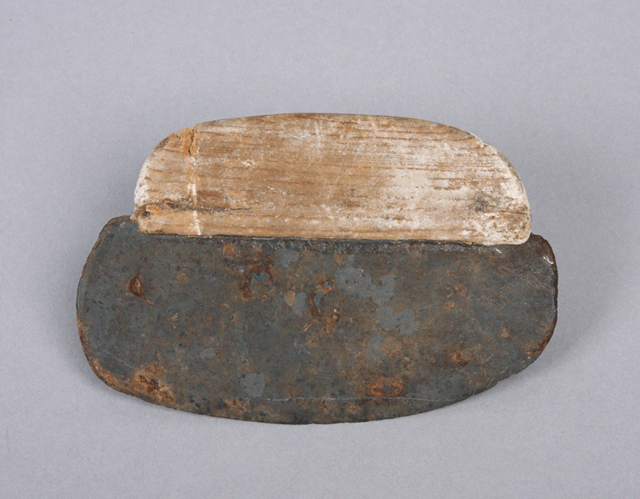
2005.30.14, ulu (knife) of slate and wood
Photograph by B. Bernard

2005.30.14, ulu (knife) of slate and wood
Photograph by B. Bernard
Ulus are all-purpose knives—they slice, chop, and scrape. The last
function is important if you need to clean hides for use in clothing
and other purposes. The photo that follows shows an ulu being used
as a hide scraper. The open boat in the left background, known as an umiak,
consists of oiled hides stretched over a frame.
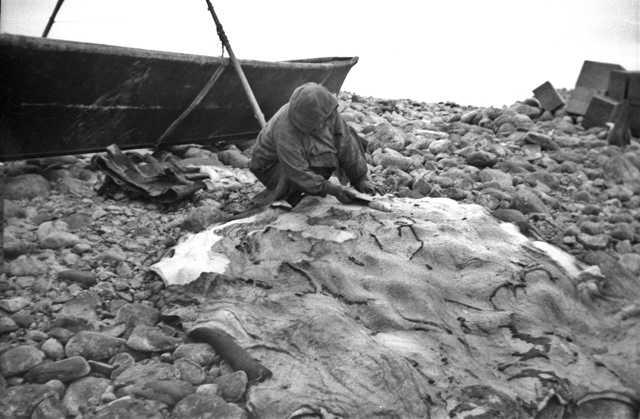
69.71.214, woman scraping a hide with an ulu
Inupiaq; Point Hope, Alaska, 1933
Dr. Julen G. Manser collection
Photograph by J. Manser
Because the ulu isn't obvious in the photo above, we've thrown in a second
photo of women holding ulus. One ulu is on edge relative to the camera,
but the second, shown broadside, is more obvious.
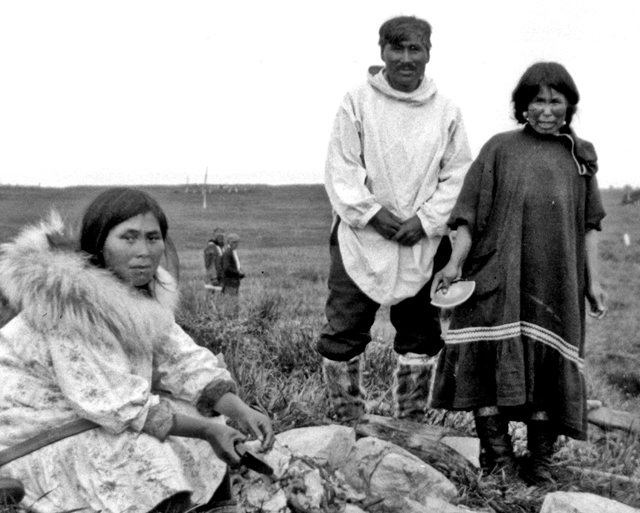
69.71.276, scene including two women with ulus (detail)
Inupiaq; Point Hope, Alaska, 1933
Dr. Julen G. Manser collection
Photograph by J. Manser
The next photo shows a second ulu with a slate blade. A beveled slate edge
is not very sharp, but in parts of the Arctic there was no better material
available. It's no surprise that once steel became available, Arctic people
quickly switched to the imported material. The second photo below shows an ulu
from the 1900s. Today, you can purchase factory-made ulus from gourmet
catalogues.
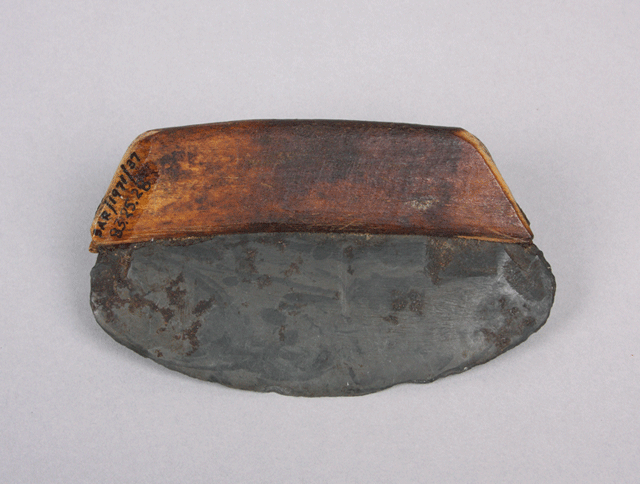
83.25.28, ulu (knife) of slate and wood
Photograph by B. Bernard
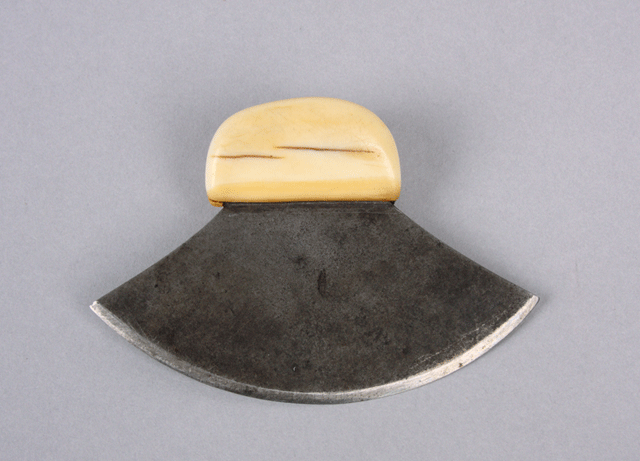
69.71.9, ulu (knife) of steel and ivory
Photograph by B. Bernard
To return to the North by Southwest learning path, click here. To return to the thumbnail on the Tools page, please click here.
All content copyright © Maxwell Museum of Anthropology, University of New Mexico. High-resolution versions of photographs may be ordered from the Maxwell Museum's photo archives. Please make note of the catalogue number. For more information please visit the photo archives web page
Page last revised on June 10, 2011. Please report problems to toh@unm.edu